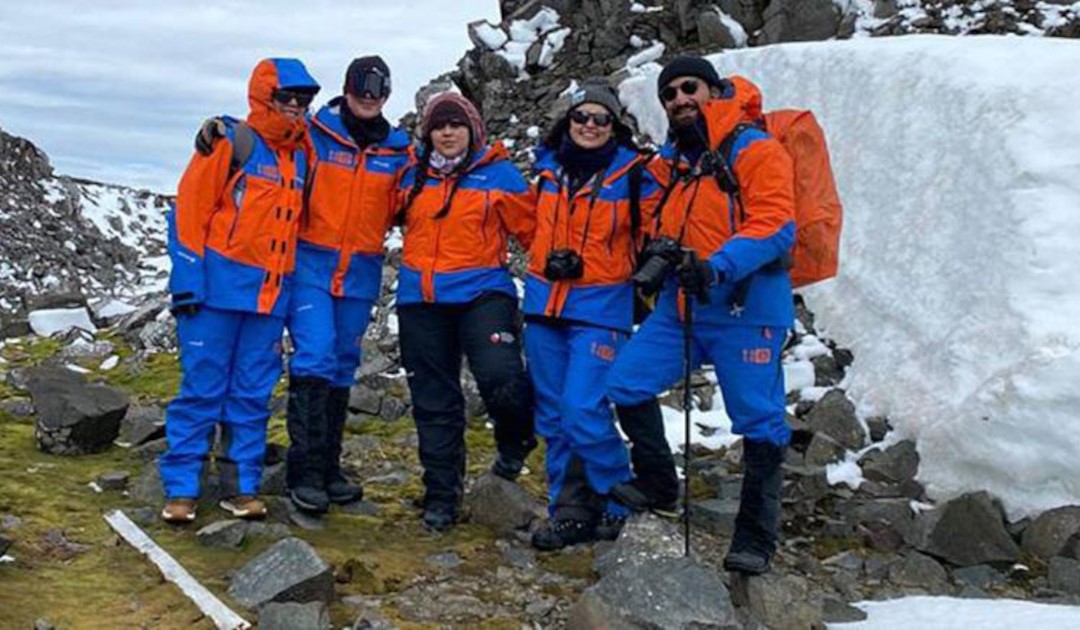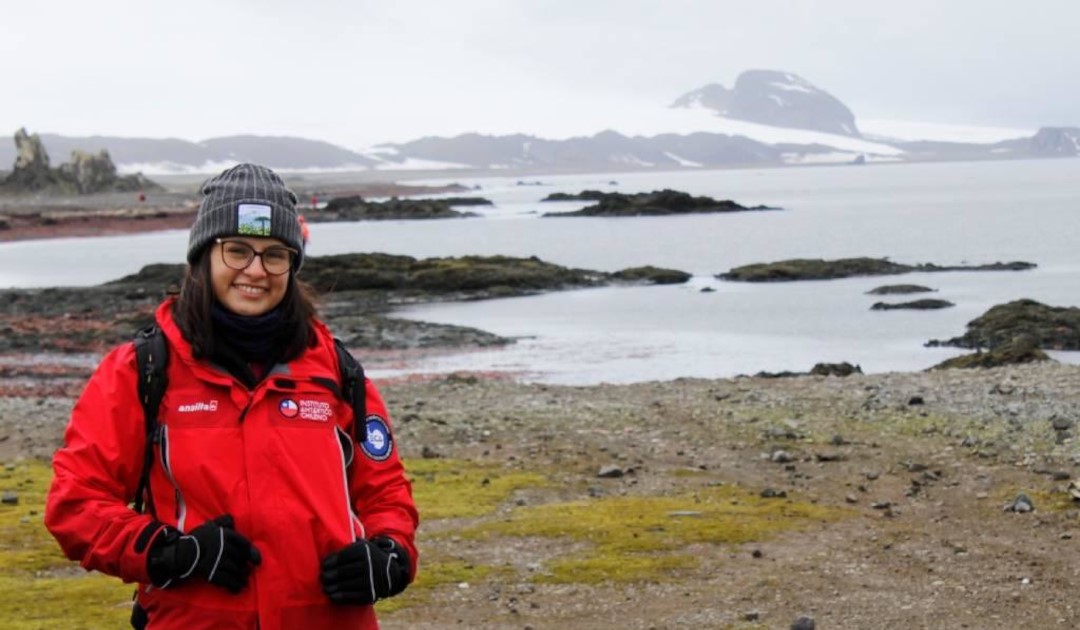
Chilean lawyers have been sent to Antarctica to study the possibility of harmonising legislation in this region in terms of standards and biosafety linked to the introduction of avian flu and its consequences for wildlife and human activities.
“We conducted interviews, for example, with the heads of scientific stations in Antarctica”, explains Giovannina Sutherland, lawyer at the Instituto Milenio Base, in an interview with PolarJournal. “We started by saying that we were social science researchers, then later that we were lawyers, specifying that we were not in fiscal law, but in Antarctic law.” On April 25, Giovannina Sutherland, Catalina Sepúlveda and María Jesús Maibe, legal specialists at the Instituto Milenio Base, presented their polar law mission of last January, across the Antarctic Peninsula, to the University of Chile in Santiago.
The team studied the biosafety rules relating to avian influenza – which arrived on the continent at the beginning of the year – and proposed the unification of measures within the framework of the Antarctic Treaty. For the time being – as with Covid-19 – each country is legislating on its own, so the standards are sometimes very different. “Last summer, it was not possible for ornithologists or biologists working on marine mammals to travel to Antarctica. It was a controversial issue”, explains Giovannina Sutherland, referring to the Chilean standard introduced in October last year. Chile has also closed its Yelcho base because it is located in a colony of penguins. This is impossible for France if we refer to the Dumont d’Urville station, as well as for other countries.


Last January, the lawyers visited the bases and ships on the peninsula for the first time. “We saw how the protocols work for private operators and for the navy,” explains Giovannina Sutherland. As well as the Chilean stations, they visited stations operated by Spain, Uruguay and China. “We conducted interviews with scientists such as Antonio Alcamí, the Spanish virologist and his team who had just confirmed the first case of avian flu in Antarctica”, she tells us. “We travelled with Korean scientists who had to apply two types of biosafety, the Chilean and then the Korean, to reach their research station.”
The Instituto Milenio Base team hopes to present this issue at the Treaty’s consultative meeting. “So that at least the States can agree to work together and then arrive at a common standard”, explains the lawyer. “But it’s a complex issue, and there is no international working group on the subject at Treaty level”. These standards can be restrictive and limit research, which requires discussion between countries such as the United States, China and the United Kingdom.


“Many of the scientists who have been working there for years don’t really know how the Antarctic Treaty system works, such as legal measures, recommendations or the consensus rule,” she explains. “The discussions were very interesting. We found lots of issues that we wouldn’t have identified if we hadn’t been there.”
The mission also highlighted the importance of exchanges between legal specialists and scientists working in the region. “Connectors are often lacking to reach decisions, to open up discussions at the level of the Treaty’s consultative meetings, in its respective committees, and all the more so to regulate in this legal area”, explains Giovannina Sutherland.
Exchanges between legal experts and scientists led to other areas of work. “The issue of liability, for example, in relation to Annex VI of the Treaty”, she points out. “But also in the field of tourism, where each country also regulates on its own.”
Camille Lin, Polar Journal AG
Find out more about this topic:






I’m deeply impressed by the dedication and seriousness with which u-antartica’s work has been conducted. Although I’m an alumnus of the Law School of the University of Chile and work in a different field, I’ve closely followed the impactful work they do. Without their efforts, I might never have appreciated this area of law. My heartfelt congratulations to the team! It’s a beautiful journey that undoubtedly provides valuable academic experiences.